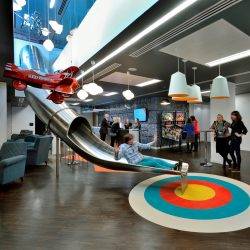February 13, 2019
Stark levels of stress among small business owners as they struggle to stay solvent
Chronic work-related stress has risen sharply among small business owners, with a fifth of small business owners look to taking a job elsewhere to stay afloat this year. This is according to new research from AXA, which reveals that many are adopting short-term planning and cutting reliance on external funding ahead of Brexit. Staying agile and light is a common strategy, but may not give businesses the best chance of survival if financial cushions are not in place too. The study finds a sharp increase in financial anxiety amongst business owners. Over the course of 2018, those reporting they felt chronically stressed about their businesses increased by almost 50 percent, reaching 29 percent by year end. (more…)












 The two most important barriers to working for those in their 50s and early to mid-60s are health and caring; according to the latest analysis from the ONS.
The two most important barriers to working for those in their 50s and early to mid-60s are health and caring; according to the latest analysis from the ONS. 



















December 17, 2018
Don’t be a turkey, get on the commercial property gravy train
by Jo Sutherland • Comment, Property
(more…)